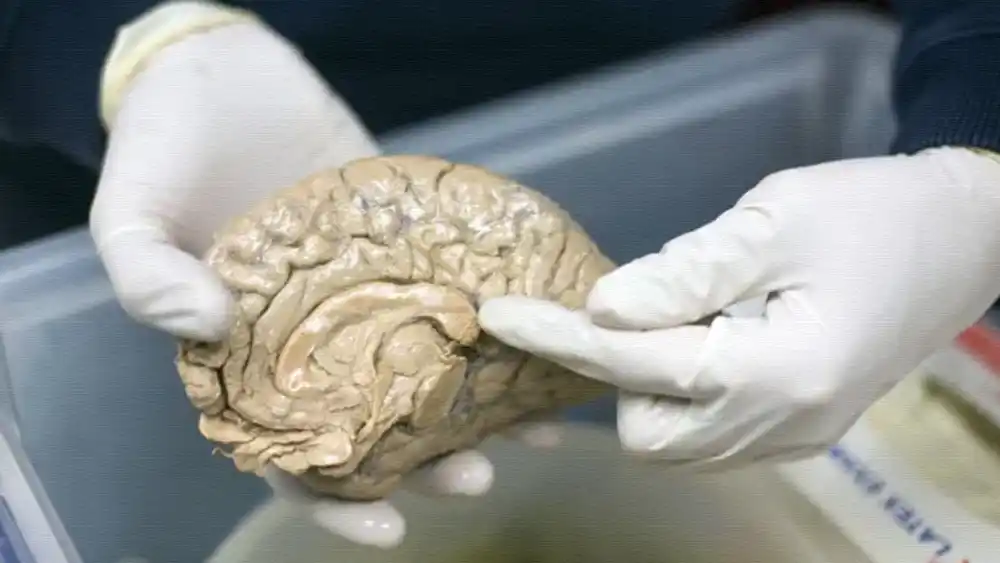
NEUROSCIENCE
What is Brain Fog: Unlocking Mental Clarity
-
Rahul Priydarss
Discover effective strategies, causes, symptoms, prevention, and treatment options for overcoming brain fog in this comprehensive guide. Learn how lifestyle changes, supplements, brain exercises, and real-life case studies can help clear mental fog and improve cognitive function. Get insights into managing stress, optimizing sleep, and maintaining a healthy diet to enhance brain health and regain mental clarity. Dive into practical tips and expert advice to combat brain fog and boost overall well-being.
Introduction of Brain Fog:
Brain fog, often described as a state of mental cloudiness or confusion, can significantly impact one’s daily functioning and overall well-being. Brain fog can disrupt various aspects of life, whether it’s feeling forgetful, having difficulty concentrating, or experiencing mental fatigue. This article will explore effective strategies to clear brain fog and regain mental clarity.
What is Brain Fog:
Brain fog is a term used to describe a state of mental cloudiness or confusion. It’s like feeling as if there’s a haze in your mind, making it difficult to think clearly or concentrate. People experiencing brain fog may feel forgetful, have trouble finding the right words, or struggle to focus on tasks. It can affect daily life, including work, school, and relationships. Brain fog can be caused by factors such as lack of sleep, stress, poor diet, dehydration, or underlying health conditions. Clearing brain fog often involves implementing strategies to improve sleep, manage stress, eat a healthy diet, stay hydrated, and engage in activities that promote mental clarity, such as mindfulness and exercise.

Table of Contents
Causes of Brain Fog:
Understanding the underlying causes of brain fog is essential for effectively managing and alleviating this common cognitive symptom. By addressing lifestyle factors, managing stress, maintaining a healthy diet, staying hydrated, and seeking appropriate medical care when needed, you can improve cognitive function and regain mental clarity. Brain fog can be caused by various factors, including.
Sleep Deprivation: Not getting enough quality sleep can leave you feeling mentally foggy and fatigued. Adequate sleep is crucial for cognitive function and overall brain health.
Stress and Anxiety: High levels of stress and anxiety can impair cognitive function and contribute to brain fog. Chronic stress releases cortisol, a stress hormone, which can interfere with brain function and clarity.
Poor Diet and Nutrition: A diet lacking in essential nutrients, such as vitamins and minerals, can negatively affect brain health and lead to cognitive impairment. Consuming processed foods, sugar, and unhealthy fats can also contribute to brain fog.
Dehydration: Dehydration can impair brain function and cognitive performance, leading to mental fog. It’s important to stay hydrated by drinking enough water throughout the day.
Underlying Health Conditions: Certain medical conditions, such as thyroid disorders, hormonal imbalances, autoimmune diseases, and neurological disorders, can cause brain fog as a symptom. It’s essential to address any underlying health issues with proper medical treatment.
Medications: Some medications may have side effects that affect cognitive function and contribute to brain fog. It’s important to discuss any concerns about medication side effects with your healthcare provider.
Lack of Physical Activity: Sedentary lifestyles can negatively impact brain health and cognitive function. Regular exercise promotes blood flow to the brain, reduces stress, and improves mood, all of which can help alleviate brain fog.
Environmental Factors: Exposure to environmental toxins, pollutants, or allergens can affect cognitive function and contribute to brain fog. Maintaining a clean and healthy environment can help minimize these effects.
Symptoms of Brain Fog:
Recognizing these symptoms is the first step in addressing and managing brain fog effectively. By identifying underlying causes, implementing lifestyle changes, and seeking appropriate medical care when necessary, individuals can alleviate brain fog and improve cognitive function and overall well-being. Brain fog can manifest in various symptoms, including.
Forgetfulness: Difficulty remembering things, such as names, dates, or where you put items, is a common symptom of brain fog.
Difficulty Concentrating: People experiencing brain fog may struggle to focus on tasks or maintain attention for extended periods.
Mental Fatigue: Feeling mentally tired, even after minimal mental exertion, is characteristic of brain fog.
Confusion: A sense of mental confusion or disorientation, where thoughts feel jumbled or unclear, can accompany brain fog.
Slowed Thinking: Brain fog can cause a delay in processing information or responding to stimuli, leading to slowed thinking or reaction times.
Word Finding Difficulty: Difficulty finding the right words or expressing thoughts verbally is a common symptom of brain fog.
Impaired Decision-Making: Brain fog can impair cognitive function, making it challenging to make decisions or solve problems effectively.
Decreased Productivity: Individuals experiencing brain fog may find it difficult to complete tasks efficiently or meet deadlines due to decreased cognitive function.
Emotional Instability: Brain fog can impact mood stability, leading to irritability, mood swings, or heightened emotional reactivity.
Physical Symptoms: In addition to cognitive symptoms, brain fog can also manifest in physical symptoms such as headaches, fatigue, dizziness, or muscle aches.
Prevention of Brain Fog:
Preventing brain fog involves adopting healthy lifestyle habits and implementing strategies to support optimal brain health. Here are some preventive measures.
Prioritize Sleep: Aim for 7-9 hours of quality sleep each night. Establish a consistent sleep schedule, create a relaxing bedtime routine, and ensure your sleep environment is conducive to restful sleep.
Manage Stress: Practice stress management techniques such as deep breathing, meditation, yoga, or journaling to reduce stress levels and promote mental clarity.
Eat a Balanced Diet: Fuel your body and brain with nutrient-dense foods, including fruits, vegetables, whole grains, lean proteins, and healthy fats. Limit processed foods, sugar, and unhealthy fats, which can contribute to cognitive impairment.
Stay Hydrated: Drink plenty of water throughout the day to stay hydrated and support optimal brain function. Dehydration can impair cognitive function and exacerbate brain fog.
Regular Exercise: Engage in regular physical activity, such as walking, jogging, swimming, or dancing, to improve blood flow to the brain, reduce stress, and enhance mood.
Mindfulness and Meditation: Practice mindfulness techniques to cultivate present-moment awareness and reduce mental clutter. Mindfulness meditation can improve focus, concentration, and mental clarity.
Limit Alcohol and Caffeine: Excessive alcohol and caffeine consumption can interfere with sleep quality, dehydrate the body, and impair cognitive function. Limit intake to promote brain health.
Stay Mentally Active: Engage in activities that challenge the brain, such as puzzles, games, reading, learning new skills, or participating in creative pursuits.
Maintain Social Connections: Foster social connections with friends, family, and community members. Social interaction stimulates cognitive function and emotional well-being.
Seek Professional Help: If you experience persistent or severe brain fog despite implementing preventive measures, seek guidance from a healthcare professional. Underlying medical conditions, such as thyroid disorders or hormonal imbalances, may require proper diagnosis and treatment.
Impact of Brain Fog to human:
Brain fog can have significant impacts on various aspects of human life, including.
Work Performance: Brain fog can impair cognitive function, making it difficult to concentrate, solve problems, and make decisions effectively. This can lead to decreased productivity and performance at work or school.
Academic Achievement: Students experiencing brain fog may struggle to focus during lectures, retain information, and perform well on exams. Brain fog can hinder learning and academic achievement.
Daily Functioning: Brain fog can make everyday tasks, such as driving, cooking, or completing household chores, challenging and exhausting. It can lead to forgetfulness, difficulty following instructions, and increased frustration.
Interpersonal Relationships: Brain fog can impact communication and social interactions, leading to misunderstandings, forgetfulness, and irritability. This can strain relationships with family members, friends, and colleagues.
Emotional Well-being: Persistent brain fog can contribute to feelings of frustration, stress, anxiety, and depression. It can affect self-esteem and confidence, leading to a negative impact on overall emotional well-being.
Quality of Life: Brain fog can significantly reduce quality of life by limiting participation in activities, hobbies, and social events. It can lead to feelings of isolation, helplessness, and dissatisfaction with life.
Health Management: Brain fog can interfere with the ability to manage one’s health effectively, including remembering to take medication, attend medical appointments, or follow through with recommended lifestyle changes.
Safety Concerns: In severe cases, brain fog can pose safety risks, particularly when performing tasks that require focus and attention, such as operating machinery or driving. Impaired cognitive function can increase the likelihood of accidents and injuries.

How to Clear Brain Fog:
Clearing or Treatment of brain fog requires implementing effective strategies to improve cognitive function and regain mental clarity. Here are some strategies that can help.
Prioritize Sleep and Rest: Establish a consistent sleep schedule and aim for 7-9 hours of quality sleep each night. Create a relaxing bedtime routine, such as reading or taking a warm bath, to signal to your body that it’s time to wind down.
Implement Stress Management Techniques: Practice relaxation techniques such as deep breathing, meditation, yoga, or progressive muscle relaxation to reduce stress levels and promote mental clarity. Engage in activities that bring joy and relaxation, such as spending time in nature or practicing hobbies.
Adopt a Healthy Diet: Fuel your body and brain with nutrient-dense foods, including fruits, vegetables, whole grains, lean proteins, and healthy fats. Avoid processed foods, excessive sugar, and unhealthy fats, which can contribute to brain fog and cognitive impairment.
Stay Hydrated: Dehydration can impair cognitive function and exacerbate brain fog. Drink plenty of water throughout the day to stay hydrated and support optimal brain function.
Regular Physical Activity: Exercise improves blood flow to the brain, reduces stress, and enhances mood, all of which can help alleviate brain fog. Aim for at least 30 minutes of moderate-intensity exercise most days of the week.
Mindfulness and Meditation: Practice mindfulness techniques such as mindfulness meditation, body scan meditation, or mindful breathing to cultivate present-moment awareness and reduce mental clutter. Mindfulness can help clear brain fog by calming the mind and improving focus and concentration.
Supplements and Vitamins: Certain supplements and vitamins, such as omega-3 fatty acids, B-complex vitamins, vitamin D, and antioxidants, can support brain health and cognitive function. Consult with a healthcare professional before starting any new supplements to ensure safety and efficacy.
Establish a Routine: Create a structured daily routine that includes specific times for meals, work, exercise, relaxation, and sleep. Having a routine can minimize cognitive overload and reduce brain fog by providing structure and predictability.
Limit Distractions: Minimize distractions in your environment, such as noise, clutter, and digital devices, to improve focus and concentration. Use techniques like time blocking and the Pomodoro Technique to manage tasks efficiently and avoid cognitive overload.
Brain Exercises: Engage in activities that challenge the brain, such as puzzles, crosswords, memory games, or learning a new skill. Brain exercises can improve cognitive function and and prevent brain fog by stimulating neural pathways and promoting mental agility.
Supplements and Vitamins for Brain Fog:
Certain supplements and vitamins can support brain health and cognitive function, potentially helping to alleviate brain fog. Here are some supplements and vitamins that may be beneficial.
Omega-3 Fatty Acids: Omega-3 fatty acids, found in fatty fish such as salmon, mackerel, and sardines, as well as in fish oil supplements, are essential for brain health. They have anti-inflammatory properties and support cognitive function, potentially reducing brain fog.
B-Complex Vitamins: B vitamins, including B12, B6, and folate, play crucial roles in brain function and energy metabolism. Deficiencies in these vitamins have been linked to cognitive impairment and may contribute to brain fog. B-complex supplements or foods rich in B vitamins, such as leafy greens, legumes, and fortified cereals, can help maintain optimal brain health.
Vitamin D: Vitamin D deficiency has been associated with cognitive impairment and mood disorders, both of which can contribute to brain fog. Sunlight exposure and dietary sources such as fatty fish, fortified dairy products, and supplements can help maintain adequate vitamin D levels.
Antioxidants: Antioxidants, such as vitamin C, vitamin E, and beta-carotene, protect the brain from oxidative stress and inflammation, which can contribute to cognitive decline and brain fog. Foods rich in antioxidants, such as berries, citrus fruits, nuts, and seeds, as well as antioxidant supplements, can support brain health.
Magnesium: Magnesium plays a role in neurotransmitter function and nerve transmission, making it essential for cognitive function. Magnesium deficiency has been linked to symptoms such as brain fog, anxiety, and depression. Magnesium supplements or magnesium-rich foods such as nuts, seeds, leafy greens, and whole grains can help maintain optimal levels.
Ginkgo Biloba: Ginkgo biloba is an herbal supplement that has been used for centuries to improve cognitive function and memory. It may enhance blood flow to the brain, increase oxygen utilization, and protect against oxidative damage, potentially reducing brain fog.
Rhodiola Rosea: Rhodiola rosea is an adaptogenic herb that may help reduce stress and improve cognitive function. It has been studied for its potential to enhance mental clarity, focus, and concentration, making it a promising supplement for alleviating brain fog.
Brain Exercises for Brain Fog:
Engaging in brain exercises can help stimulate neural pathways, improve cognitive function, and alleviate brain fog. Here are some brain exercises that you can incorporate into your daily routine.
Puzzle and Games: Crossword puzzles, Sudoku, word searches, and jigsaw puzzles are excellent brain exercises that challenge memory, problem-solving skills, and attention to detail.
Memory Games: Memory games such as matching cards, Simon Says, or the classic game of Memory can help improve short-term memory, concentration, and mental recall.
Learn Something New: Learning a new skill or hobby, such as playing a musical instrument, speaking a foreign language, or mastering a new recipe, can stimulate brain activity and create new neural connections.
Reading and Writing: Reading books, articles, or challenging literature can enhance vocabulary, comprehension, and critical thinking skills. Writing, whether it’s journaling, creative writing, or poetry, can also stimulate cognitive function and creativity.
Mental Math: Practicing mental math exercises, such as calculating tips at restaurants, estimating grocery costs, or solving math problems in your head, can improve numerical processing and problem-solving abilities.
Mindfulness Meditation: Mindfulness meditation involves focusing on the present moment and cultivating awareness of thoughts, feelings, and sensations without judgment. Regular mindfulness practice can improve attention, concentration, and mental clarity.
Brain Training Apps: There are many smartphone apps and online platforms specifically designed to provide brain training exercises and games. These apps target various cognitive skills, including memory, attention, problem-solving, and processing speed.
Physical Exercise: Regular physical activity not only benefits the body but also the brain. Aerobic exercise, such as walking, jogging, swimming, or dancing, increases blood flow to the brain, stimulates the release of neurotransmitters, and promotes neuroplasticity.
Social Interaction: Engaging in social activities, such as conversations with friends and family, group classes, or community events, can stimulate cognitive function and emotional well-being. Social interaction challenges the brain to process information, interpret social cues, and engage in meaningful communication.
Visualization and Mental Imagery: Practice visualizing vivid images or scenarios in your mind, such as recalling a favorite vacation spot or imagining a peaceful scene. Visualization exercises can enhance creativity, memory, and mental clarity.
Case Studies: Real-Life Examples of Overcoming Brain Fog:
Real-life examples of individuals overcoming brain fog can provide valuable insights and inspiration for others facing similar challenges. Here are two case studies illustrating successful strategies for clearing brain fog.
Case Study 1: Sarah’s Journey to Mental Clarity:
Background: Sarah, a 35-year-old marketing executive, was struggling with persistent brain fog, making it difficult for her to focus at work and keep up with her daily responsibilities. She often felt forgetful, overwhelmed, and mentally fatigued, which was affecting her productivity and confidence.
Strategy: Sarah decided to take a holistic approach to address her brain fog. She started by prioritizing sleep and establishing a consistent bedtime routine, which included limiting screen time before bed and practicing relaxation techniques such as deep breathing and meditation. She also revamped her diet, focusing on whole foods rich in nutrients, and cut back on processed foods and sugary snacks. Sarah incorporated regular exercise into her routine, which helped reduce stress and improve mood.
Outcome: Over time, Sarah noticed significant improvements in her cognitive function and mental clarity. She felt more alert, focused, and energized throughout the day. By prioritizing self-care and making healthy lifestyle changes, Sarah was able to overcome her brain fog and regain control of her life.
Case Study 2: James’ Journey to Clear Thinking:
Background: James, a 45-year-old IT consultant, had been experiencing brain fog for several months, which was impacting his work performance and personal life. He struggled to concentrate during meetings, make decisions, and complete projects on time. James also experienced frequent headaches and fatigue, further exacerbating his cognitive difficulties.
Strategy: James sought guidance from a healthcare professional to identify the underlying causes of his brain fog. After conducting a thorough evaluation, it was discovered that James had vitamin deficiencies, particularly in vitamin D and B vitamins. His healthcare provider recommended dietary changes and supplements to address these deficiencies. Additionally, James implemented stress management techniques such as mindfulness meditation and regular exercise to reduce stress levels and improve mental clarity.
Outcome: With the support of his healthcare provider and consistent implementation of lifestyle changes, James experienced a significant improvement in his cognitive function and overall well-being. His headaches reduced in frequency, and he felt more alert and focused at work. By addressing the root causes of his brain fog and adopting healthy habits, James was able to reclaim his clarity of mind and thrive in both his professional and personal life.
FAQs about Brain Fog:
A1: Brain fog is a state of mental cloudiness, making it hard to concentrate or think clearly.
A2: Causes include lack of sleep, stress, poor diet, dehydration, health conditions, medications, and lack of exercise.
A3: Prioritize sleep, manage stress, eat well, stay hydrated, exercise, practice mindfulness, limit alcohol and caffeine, stay mentally active, and seek help if needed.
A4: Forgetfulness, difficulty concentrating, mental fatigue, confusion, slowed thinking, word-finding difficulty, decreased productivity, and physical symptoms like headaches or fatigue.
A5: Prioritize rest, manage stress, eat healthy, stay hydrated, exercise, practice mindfulness, take supplements, establish a routine, limit distractions, and engage in brain exercises.
-Please remember, to always consult with healthcare professionals or Doctors for personalized advice related to medical conditions.
Conclusion:
In conclusion, brain fog can significantly impact daily functioning and overall well-being, but there are effective strategies to alleviate it. By understanding its causes, recognizing its symptoms, and implementing preventive measures, individuals can maintain optimal brain health and clarity. Lifestyle changes such as prioritizing sleep, managing stress, maintaining a healthy diet, staying hydrated, and engaging in brain exercises can help clear brain fog and improve cognitive function. Additionally, supplements and vitamins may provide additional support for brain health. Real-life examples illustrate the success of holistic approaches in overcoming brain fog. With proper strategies and support, individuals can regain mental clarity and enhance their quality of life.




